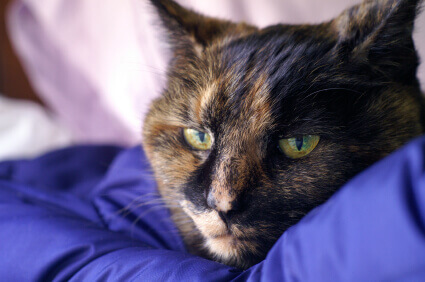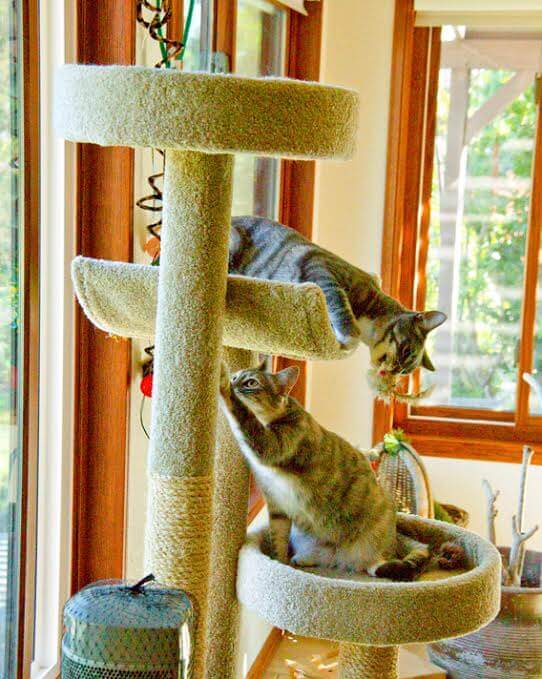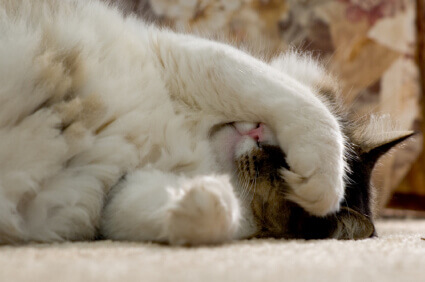Would you know if your cat was stressed?
Due to their seemingly lazy demeanor, the idea of a stressed cat may seem unlikely or even absurd to many pet owners. But if your cat is demonstrating behaviors such as inappropriate elimination, aggression or excessive grooming, stress is likely to be a contributing factor.
In addition, stress can lead to a number of chronic medical conditions, such as Feline Lower Urinary Tract Disease (FLUTD).
Where does stress come from?

Cats may become stressed by a number of factors in his/her environment, including other cats, changes in the home such as moving, remodeling, the arrival of a new baby or pet, or lack of environmental enrichment.
The first step in resolving behavior issues in cats is to visit a veterinarian who can rule out any medical causes that may be related to your cat’s behavior before addressing other possible causes of stress.
If your cat is medically healthy, talk to your veterinarian about these possible behavior solutions.
Environmental enrichment:
We can’t say it enough: Environmental enrichment is key for mentally and physically healthy indoor cats.
Unfortunately, while indoor cats live longer and are at less risk for contracting infectious diseases or injuries, they are at greater risk for stress and behavioral issues.
Providing an enriched environment can help increase activity, decrease mental stagnation and provide relief from anxiety or boredom, as well as reduce tension in multiple cat households. The goal is to provide an environment of plenty, meaning plenty of room, resources such as litter boxes, food, water and toys, and privacy.

In addition, it is important to ensure these efforts are not actually contributing to your cat’s stress. For example, an additional litter box may be helpful, but placing it in a high-traffic or potentially noisy area of the house may do more harm than good.
Feliway:
Feliway and Feliway MultiCat use synthetic copies of two different feline pheromones to soothe cats and help them cope with stress.
At The Drake Center, we use a Feliway diffuser in our cat-only exam room to help our feline patients feel at home and keep them relaxed and comfortable during their visit. Similarly, this product can be used to manage a number of stress-related behaviors in your cat at home.
For multiple cat households, Feliway MultiCat can be used to reduce social tension and conflict, redirected aggression and bullying, as well as general stress and anxiety.
Composure:
A dietary supplement that promotes balanced behavior, Composure can help alleviate many stress-related behavioral issues as well as ease anxiety regarding environmental stressors like traveling or boarding. It can also help with social tension and aggression in multiple cat households.
The flavored chews can be used as needed during times of increased stress or daily for ongoing support.

Behavioral medication:
Behavioral medications such as Prozac or Clomicalm can be used to treat aggression and bullying in cats as well as reduce compulsive behaviors like excessive grooming.
As with all behavioral medications and supplements, this type of therapy should be used in conjunction with environmental enrichment and behavior modification techniques.
For more information about managing stress in cats, please contact us at (772) 770-4263.
This article first appeared on: The Drake Center Blog

